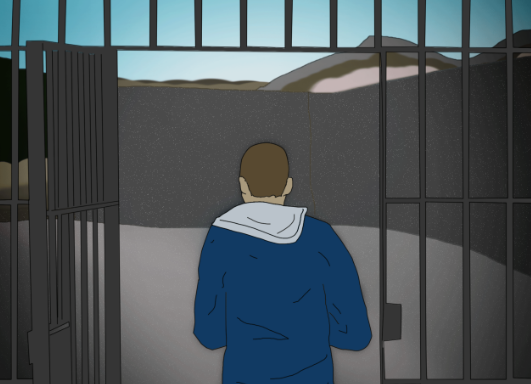Cal Matters - CDCR Shorted Many Prisoners Release Money
People leaving California prisons are entitled to $200 under state law.

For many people, breaking the cycle of incarceration is extremely difficult. Prison conditions and limited re-entry support, both during and after incarceration, make it very challenging to adjust to normal life. With over 2 million people in the criminal justice system at any given time, the U.S. has the largest prison population in the world and prisons tend to be overcrowded. Further exacerbating this issue, there are few resources available to help formerly incarcerated people find housing, employment and other social services, and many return to criminal activity to get by financially.
According to a 2008 report by the Stanford Criminal Justice Center, the first 72 hours after release are critical to determining whether a former incarcerated person's path will lead away from prison or make a sharp U-turn. Financial assistance, known as "gate money," provided to those leaving prison are meant to help bridge the gap between incarceration and successful reintegration into the community.
Many formerly incarcerated people say gate money isn’t enough to meet the demands of their lives in the days following their release. Many say they are forced to make trade-offs between eating or buying practical items that can help them transition back into society, such as cellphones and professional clothing for job interviews. Moreover, release money in nearly every state hasn’t kept pace with rising inflation.
Evidently, California's made those prospects even more difficult, as the California Department of Corrections and Rehabilitation (CDCR) was discovered to be withholding a portion of departing incarcerated people's gate money. In California, that amount is set at $200 according to state law.
Cal Matters reported on a class action lawsuit in Alameda County Superior Court where CDCR allegedly illegally docked fees from the gate money that former prisoners receive to help them cover basic necessities in their initial days of freedom. The lawsuit estimates CDCR has shortchanged over a million people since 1994. According to its regulations, the agency deducts money from release allowances if someone does not have dress-out clothes or arrangements for transportation.
“The gate money statute has remained essentially unchanged for half a century,” Chesa Boudin and Yaman Salahi, attorneys for the plaintiffs, wrote in court filings. “Yet rather than provide each eligible person with the $200 to which they are entitled, CDCR routinely withholds some or all of the funds based on eligibility criteria of its own making, criteria that violate the plain language of the law.”
“We’re frustrated and disappointed that it took a lawsuit being filed to change an unlawful Department of Corrections’ policy, which should have been in compliance with the law from the very beginning,” Boudin continued.
As a result of the lawsuit, CDCR changed its policy to comply with the ruling going forward, but has yet to address how it will retroactively repay previously withheld funds.
You can read more with the report "California Shorted Prisoners on Money for Their Release. It’s Ending the Practice" at Cal Matters, a nonpartisan and nonprofit news organization bringing Californians stories that probe, explain and explore solutions to quality of life issues while holding our leaders accountable.










